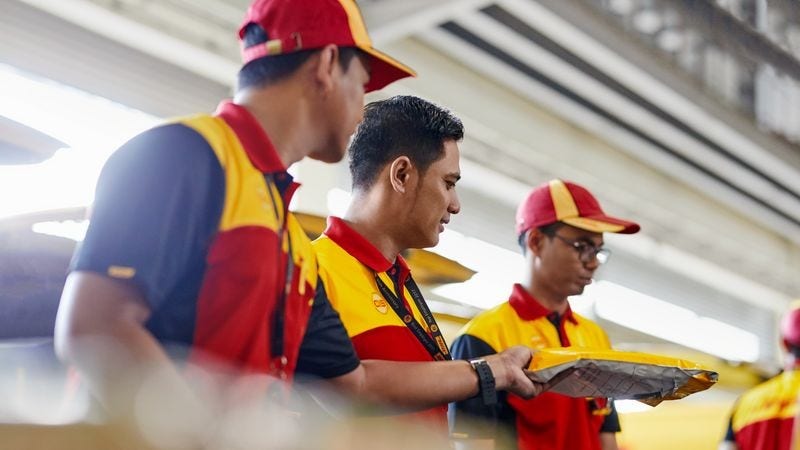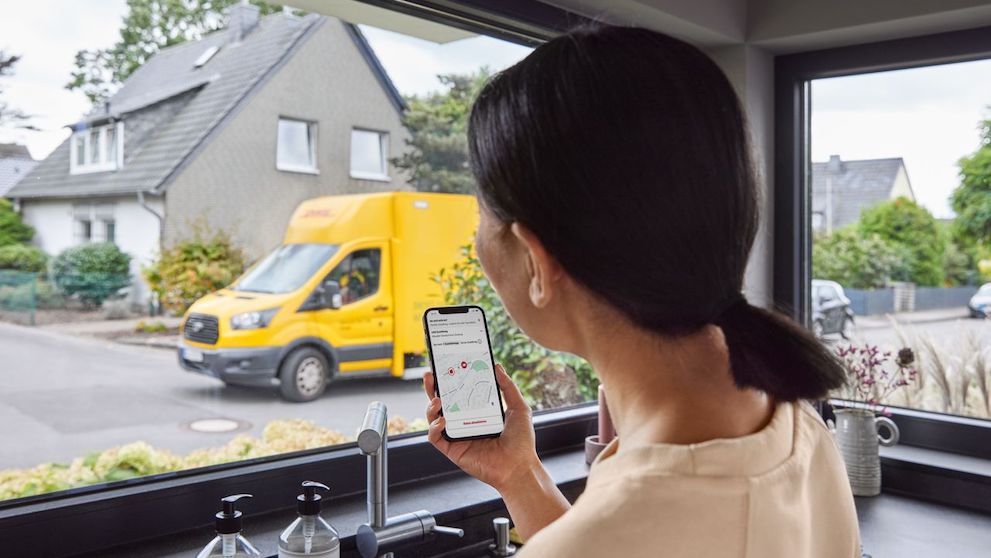"Pasabuy"—a term deeply ingrained in Filipino culture—is rapidly evolving from an informal practice to a thriving business model, offering opportunities and benefits for Filipino Small and Medium Enterprises (SMEs). But how does pasabuy work?
What is pasabuy?
Rooted in the Filipino concept of "bayanihan" (community spirit), pasabuy means "to buy on someone's behalf." It started as a casual favor, with travelers bringing back requested items for friends and family from their trips.
Today, pasabuy has transformed into a dynamic business model, connecting buyers and sellers across borders. The basic concept remains the same: a person (the "pasabuyer") purchases items on behalf of someone else (the customer) for a fee. This can be done locally or internationally, with the pasabuyer acting as an intermediary, procuring the items, facilitating transactions, and handling logistics.
There are two main types of pasabuy:
- From the Philippines to abroad: This involves supplying unique Filipino products to overseas customers, often Overseas Filipino Workers (OFWs) craving a taste of home or foreigners interested in Filipino culture.
- From abroad to the Philippines: This involves bringing in items unavailable or expensive in the local market and catering to customers seeking specific brands or products.
Common products in the pasabuy market
The pasabuy market encompasses a wide range of products, reflecting the diverse needs and desires of both Filipino and international customers. For SMEs planning to start a pasabuy business and not sure how, identifying the most popular items is one of the first things to do. And some of those items include:
- Food and snacks: The demand to pasabuy food products from the Philippines is high among OFWs missing home, with popular choices including dried mangoes, instant noodles, and other packaged goods. However, before offering these items, it's important to note that restrictions may apply to certain items. Therefore, SMEs should check local and international regulations before shipping any food products.
- Clothing and accessories: Traditional Filipino clothing like the Barong Tagalog and Filipiniana dresses, as well as locally made jewelry and accessories, are sought after by Filipinos abroad and those interested in Filipino fashion.
- Handicrafts and souvenirs: Pasabuy provides a platform for Filipino artisans to showcase their skills and craftsmanship. Woven bags, native baskets, and other unique Filipino crafts become ambassadors of Filipino culture, sharing the beauty and ingenuity of local traditions with the world.
- Specialty products: Limited-edition items, local exclusives, and hard-to-find products create a niche market within the pasabuy business, catering to collectors and those seeking one-of-a-kind items.
Benefits of pasabuy for Filipino SMEs
Pasabuy presents a compelling opportunity for Filipino SMEs, both locally and internationally. Some of these benefits include:
1. Increased market reach
One of the most significant advantages of pasabuy is its ability to connect SMEs with a vast international customer base. This includes not only the millions of Overseas Filipino Workers (OFWs) scattered across the globe but also foreign consumers eager to experience Filipino products and culture. In other words, pasabuy opens doors to new markets that were previously difficult to reach, allowing SMEs to expand their customer base significantly.
2. Showcasing Filipino craftsmanship
Pasabuy is a powerful platform to showcase the quality and craftsmanship of Filipino products on an international stage. This exposure can lead to increased brand awareness, appreciation for Filipino culture, and greater demand for Filipino-made products.
3. Building customer loyalty
The personalized nature of pasabuy fosters strong relationships between businesses and customers, especially within Filipino communities abroad. These connections often translate into repeat business, positive word-of-mouth referrals, and long-lasting brand loyalty. On top of that, pasabuy allows SMEs to build a loyal following that extends beyond geographical boundaries.
4. Earning revenue from niche markets
Pasabuy allows SMEs to tap into niche markets with specific demands and preferences. Whether it's catering to the nostalgia of OFWs for traditional Filipino snacks or fulfilling the desires of foreign collectors for Filipino handicrafts, pasabuy enables businesses to identify and create specialized markets. Moreover, this focused approach can lead to increased profitability and a sustainable competitive advantage.
How does pasabuy work?
The pasabuy process, while seemingly straightforward, involves several steps to ensure a smooth and successful transaction for both the customer and the pasabuyer:
- Placing an order: Customers reach out to the pasabuyer through various channels, such as social media and messaging apps, and request specific items.
- Fulfillment: The pasabuyer sources the requested items, ensuring quality and authenticity.
- Payment and fees: Before shipping, the pasabuyer typically enumerates a detailed breakdown of the total cost, including the product prices and shipping costs.
- Shipping and delivery: Once the customer pays (can be partial or full, depending on the agreement), items are packaged and labeled, especially fragile or perishable goods, and handed over to the logistics company for shipping.
Challenges in pasabuy and how to overcome them
While pasabuy offers significant opportunities, SMEs may also encounter challenges:
- Logistics and shipping costs: International shipping can be a considerable expense, especially for small businesses. Factors like distance, weight, package dimensions, and shipping speed can all influence costs. That's why partnering with reliable logistics providers like DHL Express can help SMEs manage costs and ensure efficient delivery.
- Regulations and restrictions: Certain items, such as food, crafts, or clothing, may face import restrictions in different countries. SMEs need to stay informed about destination countries' import regulations, customs procedures, and documentation requirements when shipping for their pasabuy business.
- Building customer trust: SMEs need to establish clear communication channels, provide reliable service, and maintain transparency in pricing and fees. In addition, responding promptly to inquiries, providing accurate tracking information, and addressing any concerns or issues effectively are crucial for building customer trust and fostering long-term relationships.
- Scaling the pasabuy business: Managing high demand and increasing operational needs can be challenging. Therefore, SMEs need to develop strategies for scaling their pasabuy operations efficiently. This may involve streamlining order fulfillment processes, investing in technology to manage orders and inventory, and potentially hiring additional staff to handle the increased workload.
Tips for SMEs to succeed in the pasabuy market
The pasabuy market is dynamic and competitive. To thrive in this landscape, SMEs need to adopt effective strategies that cater to the demands of this business model.
- Leverage technology: SMEs can leverage social media platforms to promote available products and engage with potential customers, building a strong online presence and fostering a sense of community. To streamline order management and payment processing, consider utilizing e-commerce platforms to create online stores.
- Partner with reliable shipping companies: Collaborate with logistics providers like DHL Express for fast, secure, and cost-effective international shipping.
- Offer competitive pricing: Attracting and retaining customers in the pasabuy market relies heavily on competitive pricing. SMEs need to balance affordability for customers and profitability for their business. Conducting thorough market research can help understand how other pasabuy businesses compute their markup while offering discounts or promotions for repeat customers or bulk orders can incentivize loyalty and drive sales.
- Highlight unique selling points (USPs): Emphasize the unique selling points of the products, focusing on their authenticity, quality, and the cultural value they represent. Share the stories behind the products, highlighting the craftsmanship, heritage, or traditional methods involved in their creation. Or, connect the products to Filipino culture and identity, appealing to the emotional connection customers often seek through pasabuy.
Empowering SMEs through pasabuy and streamlined logistics

Pasabuy is more than just a trend; it bridges Filipino SMEs with a global market. SMEs can tap into a powerful channel to showcase Filipino products, connect with overseas customers, and ultimately grow their businesses internationally. DHL Express Philippines is here to support this journey, providing reliable and efficient international shipping solutions to help SMEs navigate the complexities of cross-border trade and showcase the best of Filipino products and craftsmanship to the world.
Ready to unlock the potential of pasabuy for your business? Open a business account with DHL Express Philippines today and experience seamless and reliable global shipping solutions. Let us help you navigate international customs, optimize your logistics, and connect with customers worldwide.

































